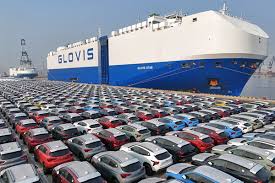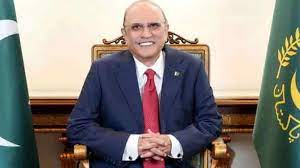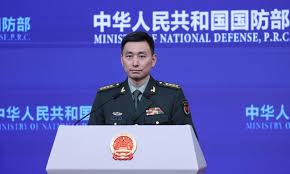EU shocks China with EV duties of up to 38 percent

Brussels: The European Commission shocked China on Wednesday by imposing duties of up to 38.1 percent on electric vehicle imports from July 4 — a level that was much higher than expected — potentially triggering a trade war at a time of great political uncertainty in Europe.
The provisional duties, which come after a months-long investigation into Chinese state aid to its EV-makers, drew immediate condemnation from Beijing, which has already threatened retaliation against European farmers and plane makers and launched an anti-dumping probe targeting the French spirits industry.
“When our partners breach the rules, we will assert our rights,” EU trade chief Valdis Dombrovskis said in a written statement shared with reporters.
A senior EU official said Chinese EVs “are subsidized from mine to EU harbor,” because Beijing has pumped money into mining lithium, refining metals, steel-making, production of batteries and cars and shipping them to Rotterdam or Hamburg.
In a first response, the Chinese Chamber of Commerce to the EU expressed its “shock, grave disappointment and deep dissatisfaction with this protectionist measure by the [European Commission]” and denounced the anti-subsidy investigation as a “witch hunt.”
It added that the tariffs would represent a “serious market barrier.”
But the Chinese Commerce Ministry, in a statement, stopped short of direct retaliation. It vowed only to “resolutely take all necessary measures to safeguard the legitimate rights of Chinese business.”
Coming just days after elections to the European Parliament, the tariffs represent a high-stakes wager by Ursula von der Leyen — who is seeking a second term at the helm of the EU executive. To stay on, she will need the backing of French President Emmanuel Macron, who wants higher duties, and German Chancellor Olaf Scholz, who doesn’t. Both leaders suffered heavy defeats last Sunday, with Macron going on to call a risky general election.
With a last-ditch attempt by Germany to keep the duties as low as possible failing, Berlin seems to have lost the arm-wrestling with Paris for now. France, whose car producers are not so exposed in China, pushed for high measures and was behind convincing the Commission to start the probe last fall.
“It was not obvious that the Commission president, who is now in the business of trying to renew her job, where she needs the support of the German chancellor, [would] basically go against something where he came out saying this is not in the German interest,” said Niclas Poitiers, an economist at the Bruegel think tank in Brussels.
“This is in line with her policies from before, and that she was basically not ducking down and not trying to make this some kind of weird compromise. I think that’s very good.”
Models made by BYD face a 17.4 percent mark-up, with Geely seeing 20 percent and SAIC the highest of 38.1. These producers were all inspected by the Commission earlier this year, though they didn’t provide as much information as Brussels was hoping to get.
The EU already charges a tariff of 10 percent on any foreign-made vehicle, versus China’s 15 percent level. The duties announced on Wednesday will be added on top of that, meaning that at the highest level they would approach 50 percent.
Producers that did not get visits and didn’t provide any info will face the highest duty of 38.1 percent. The ones that did cooperate will get charged 21 percent. Tesla, which did not get inspected, will still get the chance to provide data and then be given its own, lower, duty.
“Tesla was considered unrepresentative and therefore not included in the sample,” the senior Commission official said. They confirmed Tesla was the only producer that applied for a separate treatment.
The volunteering producers include joint ventures that Audi, BMW and Toyota have set up with Chinese partners.
The duties, said Dombrovskis, are based “on clear evidence of our extensive investigation and in full respect of WTO rules. We will now engage with Chinese authorities and all parties with a view to finalizing this investigation.”
He added the goal is not to block EVs from China completely: “Our goal is to restore the level playing field and ensure that the European market remains open to electric vehicle producers from China, provided that they play by globally agreed trade rules.”
The EU wants to cancel out the unfair advantage Chinese carmakers enjoy thanks to generous state subsidies, which were the very reason why von der Leyen announced the investigation in her set-piece annual address last September.
Though it sounds like an escalation in a trade war that’s been brewing for months, economic policy expert Simone Tagliapietra, also at Bruegel, argued the probe stays within the limits of the law.
The duty call “does not mark a move away from the bloc’s established model of economic efficiency, comparative advantage and open trade,” he said. “It really is about leveling the playing field.”





